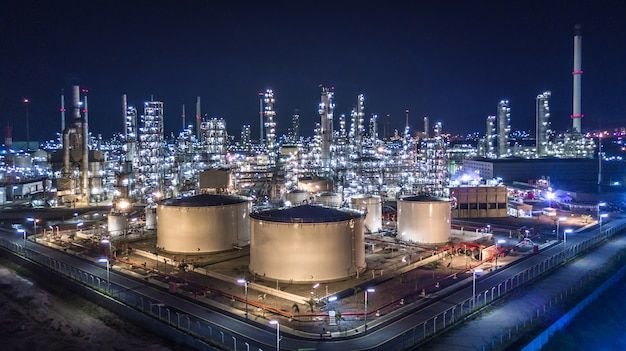
The oil and gas industry plays a significant role in powering our modern world, but it comes with substantial environmental consequences. In this blog, we will explore the various impacts of this industry, including pollution, climate change, and the efforts being made to mitigate these effects.
Pollution and Climate Change 💨
One of the most pressing issues associated with the oil and gas industry is pollution. The extraction, refining, and burning of fossil fuels release a significant amount of greenhouse gases (GHGs) into the atmosphere. These emissions contribute to air pollution, which poses serious health risks to humans and wildlife alike.
Moreover, oil spills are a catastrophic consequence of this industry. When oil spills occur, they contaminate water sources, harming aquatic ecosystems and the organisms that inhabit them. The long-term effects of such pollution can be devastating, leading to the loss of biodiversity and the disruption of food chains.
Impact on Ecosystems 🐾
The activities associated with oil and gas extraction can have dire consequences for ecosystems. Exploration and production often involve clearing land, which destroys natural habitats and displaces wildlife. This disruption can lead to a decline in biodiversity, as many species struggle to adapt to the changes in their environment.
Aquatic ecosystems are particularly vulnerable. Oil spills and runoff from drilling sites can introduce harmful substances into rivers, lakes, and oceans, threatening the health of fish and other marine life. The delicate balance of these ecosystems is often disrupted, leading to long-term ecological consequences.
Mitigation Efforts 🔧
Recognizing the environmental challenges posed by the oil and gas industry, various mitigation efforts are being implemented. One of the most promising solutions is the adoption of clean technologies. Innovations in extraction and refining processes can help reduce emissions and minimize environmental impact.
Additionally, increasing energy efficiency and transitioning to renewable energy sources are crucial steps in addressing the industry’s negative effects. By investing in solar, wind, and other renewable energy technologies, we can reduce our reliance on fossil fuels and move towards a more sustainable energy future.
Community and Policy Role 🤝
The role of communities and governments is vital in addressing the environmental impacts of the oil and gas industry. Strong policies and regulations are necessary to hold companies accountable for their environmental practices. Governments must implement strict standards for emissions, waste management, and land use to protect natural resources.
Moreover, communities can play an active role in monitoring industry activities. By staying informed and advocating for sustainable practices, individuals can contribute to the push for a cleaner, healthier environment. Supporting local initiatives and organizations focused on sustainability can also make a significant difference.
Conclusion 🌱
The environmental impact of the oil and gas industry is a complex issue that requires collective action. While the industry provides essential energy resources, it is crucial to address the pollution and ecological damage it causes. By embracing clean technologies, supporting renewable energy, and advocating for strong policies, we can work towards a more sustainable future for our planet. Together, we can protect our environment and ensure a healthier world for generations to come.
